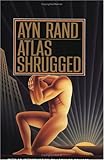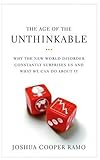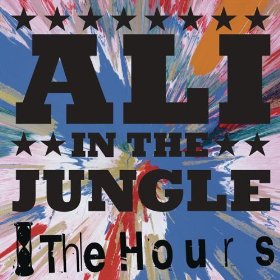 On occasion, there are some of us who rise above the rest. Almost always it is directly related to our willingness to do what is right, often when no one else is willing to do the same. When faced with a really tough decision, or against overwhelming odds, or just standing up alone against the oncoming, crashing wave of long-held traditions, right or wrong.
On occasion, there are some of us who rise above the rest. Almost always it is directly related to our willingness to do what is right, often when no one else is willing to do the same. When faced with a really tough decision, or against overwhelming odds, or just standing up alone against the oncoming, crashing wave of long-held traditions, right or wrong.
One such man whom perhaps you’ve never heard of was William Wilberforce. Before recently, I only knew that there was a college in Southwest Ohio that bore his name (though I knew not why) and that only because our travels, on occasion, have taken us directly past the campus.
Not long ago, a friend told us about a movie they had seen recently, titled “Amazing Grace.” It told the story of the man who wrote the iconic hymn by the same name. At the time, I had definitely never heard of John Newton (the song’s composer) or any of his compelling life story. I didn’t even know that he was the man whom was just previously referenced.
How can that be? And what of Isaac Milner, and William Pitt, and Thomas Clarkson, and Olaudah Equiano, and a host of others who seem to have been lost to the dusty pages of history? These people had a profound impact not just on the world of their time, but the entire direction of human history to follow, up to our present day. So how is it possible that I—a pretty well-read, and reasonably learned individual—have not heard any of their story? Sadly, that may be a direct result of the (incorrect) emphases that our educational system places on some things to the tragic absence of the greater things, even more so the greater people.
But that’s a topic for another day.
Sparked by my curiosity to learn of this man whose name I had only known to adorn a giant placard at the entrance of a university campus, I found a few books using our library system: one to read together with our kids, and another (audio book) to “read” on an upcoming trip we had planned. To my surprise, I not only discovered the fact mentioned above (that it was not Wilberforce, but rather Newton who penned the song Amazing Grace which titled the movie and the audio book I had borrowed) but a whole cast of characters whom God had providentially assembled at just the right place, and at just the right time.
We need to set the context. I certainly don’t intend to retell the whole story or recreate the world which I have been temporarily inhabiting (for it seems that way, if only in my mind), and moreover I do wish that you would also read the books I recommend here, or watch the movie or both, but in order to appreciate even this very brief, cursory introduction to the lives of these men, I must remind you of—or introduce you to—the time in which they lived.
It was the 18th century, in Great Britain. The American colonies had fought for and won their independence. The people of Europe (and their colonies) were not only fighting political revolutions—with France’s yet to come—but also philosophical and spiritual ones. The “people” were finding a voice (not just in America) and they were also reclaiming spiritual and moral values: the Great Awakening.
However, the time leading up to these major cultural changes was some of the darkest, most inhumane time in all of history. Poverty and great social and economic distance between the rich and poor, diseases, overpopulated cities and high rates of death, prostitution, rampant chronic drunkenness, and many other societal ills surrounded the one that, perhaps to our time, was the most apalling of all: the African slave trade.
The book that I found for the kids tells the story of the African slave trade, from the time the boats left the harbor in England for the shores of Africa, through the horrific “Middle Passage,” to the selling of any of the men, women, and children who survived the 3-week journey, and finally completing the circle, bringing the goods from the West Indies back home to the British Isles.
It is truly unspeakable how horrendously the captives were treated. Even the fact that there was such a “trade” by their fellow Africans (who were often the initial captors and then slave traders) just leaves you doubting the existence of any absolute bottom level to which our grotesque, debase character can fall. I would prefer not to retell here all the ways that these people were treated during this frighteningly evil process, so suffice it to say, it was not human.
We all know that, of course. Slavery is bad. It’s evil, reprehensible, incomprehensible really. But too often (at least this is true for me) we are able to keep it at such a distance that it doesn’t turn our stomach. It’s just not very “real” to us, since it doesn’t happen around us anymore. We don’t see the ugly reality of it in our everyday lives. At one point in Wilberforce’s life, he brought a group of influential, wealthy Brits to one of these slave ships so that they could not only hear the stories, but actually smell the putrid death that these ships bore. The people needed to really understand what was happening.
(As a footnote, one thing that I was reminded of by the tactics employed by Wilberforce and his companions—frequently referred to as the Chapham Saints—where they used any method they could to vividly, graphically bring the world of the slave trade to the very eyes, ears, and noses of their otherwise ignorant countrymen, is the modern atrocity in our country (and others) that we politely refer to as “abortion.” Some pro-life tactics are similar, attemping in any way they can imagine to bring the gruesome images and stories front-and-center to an otherwise ingnorant populous. To this point, however, I’d say with much less popular success.)
So with a financially successful (not to mention culturally well-entrenched) mercantile system powered by slaves, Wilberforce more than had his “work cut out for him.”
What made him so different is that he, young as he may have been, was decidedly up to the task.
But first, there is John Newton. Newton was a renowned slave ship captain. He actually had been a slave himself as a youth, but after having his freedom purchased by a sea captain, he found himself as the captain of his own ship: a slave ship. (One wonders how in the world he reconciled that, given his own past.) After a harrowing experience at sea where he nearly lost his ship, his crew, and his own life, Newton found (or was found by) God. His conversion obviously profoundly affected his life, and he left the slave trade to become a minister.
(At this time, the Church of England was the established, recongnized church, but it had no real spiritual basis. It was an empty link to the past, a declawed cat. Whereas it had previously had much more authority, it now represented in a way the current spiritual condition of many of the people: dead. There were, of course, still many people experiencing life-changing truth in the Gospels. These people, who were wanting to live their lives under the influence of Jesus’ teachings—not just bear the name Christian—were called “Methodists” (not yet a Christian denomination, however) and because of their sometimes serious, sometimes outrageous mannerisms, they were said to have a melancholy madness. So, the term “Methodist” was a derogatory term to most.)
As a boy of eleven or twelve years of age, Wilberforce was sent off to live with his aunt and uncle, who were among these “Methodists”, unbeknownst to his mother, who would not have allowed it, had she known. It was this time that ended up shaping the entire course of his life, though he wouldn’t really know that till much later. His aunt and uncle (along with John and Charles Wesley, who were themselves leaders in the spiritual reformation taking place) attended the church where the reformed John Newton was preaching. So for a couple years, Wilberforce not only was surrounded by people who were living lives grounded in their life-changing relationship with Jesus, but undoubtedly he was also likely introduced to the horrors of the slave trade, hearing Newton’s teaching every week, or more.
This was another astounding realization to me. In our current time, it would be a ridiculous notion indeed to suggest that any person could have no awareness of the slave trade from our country’s past. However, had Wilberforce not met this former slave ship captain, he, like many of his fellow Britons, may not have even been aware there was any slave trade at all! Because all of the trade happened far away from their island, many were entirely ignorant of the whole horrific process.
But, the thing that made William Wilberforce a great man was just this. He was certainly born into a wealthy family, having many opportunities simply from his birth. He was also, by all accounts a gifted speaker, and singer, being given by God a voice like very few others. He was afforded the best education available in England, and his best friend was the Prime Minister. By all accounts, he had everything going for him.
This is when he chose to be great.
Instead of advancing his own career in politics or any other endeavors, he chose to fight—at great cost to himself politically, socially, and even physically—for people whom he had mostly never met, and whom many people had learned to consider less than human.
But not Wilberforce. He knew to his core that it was wrong. And he would not stop until it was no longer happening.
He did not. Though defeated year after year in the parliament, Wilberforce and his Clapham Circle continued to introduce bill after bill, backing it with great oratory and educating the public to its disgusting nature. Each year they got closer and closer, but it literally took 18 years of unflappable determination before the parliament agreed to abolish slavery in 1807.
It wasn’t until 1833 that the parliament passed an act to free all slaves. That was the same year William Wilberforce died. He was able to see the final fruits of his labor within his own lifetime. Though, certainly it was only the start of a new and better reality for not only England, but all of humanity.
There are few men like this. With so many obstacles, failures, and lack of support, it would have been easier to just give up and live a quiet life alone with his family. (He married and had six children.) But great people do what is right when no one else will. No matter the cost.
These are the people we need to be.
For further learning, I recommend:
Amazing Grace (the movie)
Amazing Grace (the book)
Out of Slavery (the kids’ book)
The Interesting Narrative of the Life of Olaudah Equiano, or Gustavus Vassa, the African (internet book)
BBC History: William Wilberforce (article)
Clapham Sect, Clapham Circle, Clapham Saints (wikipedia)
Isaac Milner (wikipedia)
Newton, Wilberforce and the Spirituality of Abolition (article)





